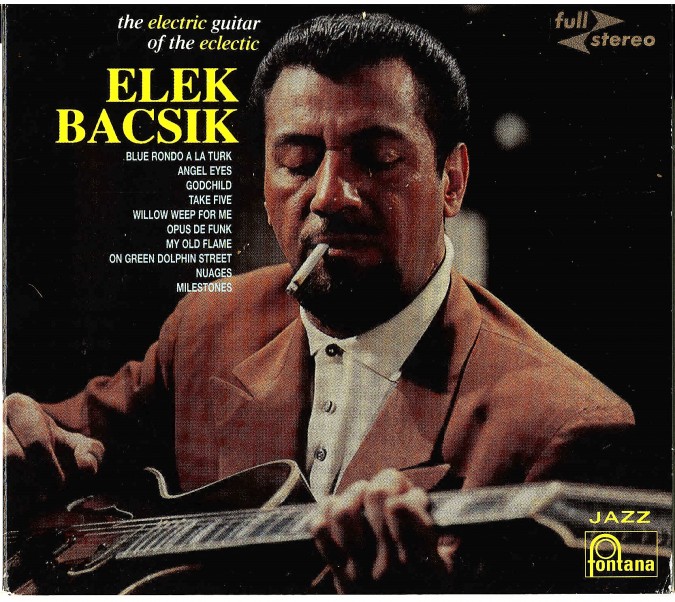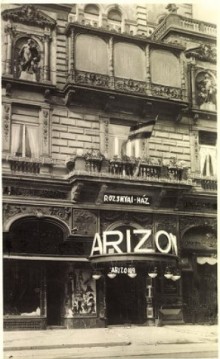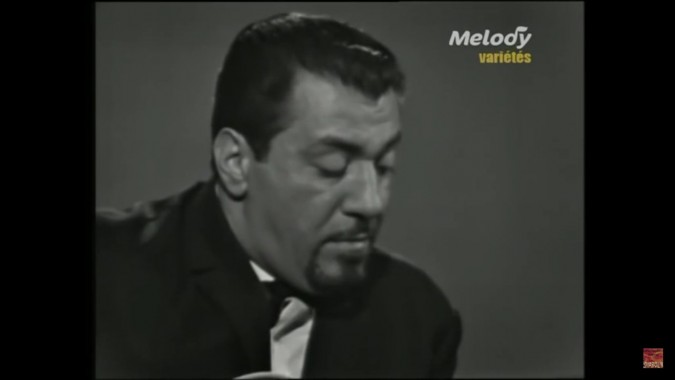Few have heard about Elek Bacsik, the great Hungarian-American jazz musician who died in 1993 in Glen Ellyn, a suburb of Chicago, Illinois. He was 73 years old.
In 1964, Bacsik made jazz history, when at the Antibes-Juan les Pins (France) festival he collaborated with Dizzy Gillespie, who honored his Roma heritage with a piece entitled For the Gypsies. The festival’s sound track, „Dizzy on the French Rivera” is considered an important milestone in jazz history. Bacsik loved bebop, Dizzy’s favorite musical style and no surprise that their collaboration produced magic.
Born in Budapest, Bacsik inherited his musical talent from his father, a violinist in a gypsy orchestra. As a teenager he played gigs as a violinist at the Arizona, the famous Budapest night club with the great pianist, Georges Cziffra.
After World War II, the young Bacsik studied violin at the Budapest Conservatory, then switched to guitar. He never graduated because he served in the army and preferred playing in Mihály Tabányi’s band. He also collaborated with the legendary Aladár Pege.
In 1948 with Bacsik got a contract in Beirut, Lebanon and his decade-long odyssey started. He played both in dance and classical orchestras in Italy, Spain and Portugal and finally in 1959 settled in France where he became a well-known jazz musician. He played with Charles Aznavour, Gilbert Bécaud and recorded with the great Serge Gainsbourg. (See here Bacsik’s “Take Five” clipp made for French TV in 1964.)
Next came the Unites States and Las Vegas. In 1966 Bacsik immigrated to the US and became a regular in Wayne Newton’s orchestra. Newton was the highest paid entertainer at the time in the Las Vegas Strip. Bacsik also accompanied Tony Bennett, Elvis Presley and collaborated with Quincy Jones.
His love was bebop and in 1974 Bacsik appeared again with Gillespie at the Newport Jazz Festival where his violin playing was memorable. By then he fell in love with the electronic violin. Unfortunately, he was a heavy smoker and later suffered a stroke which paralyzed him; he also contracted lung cancer.
Bebop as a musical style lost its luster in the 80s and his contributions were largely forgotten. Bacsik is probably the most important Hungarian-American jazz musician of our time and his oeuvre and legacy deserve more research and attention. (See here rare live footage of his band on French TV.)
György Lázár






